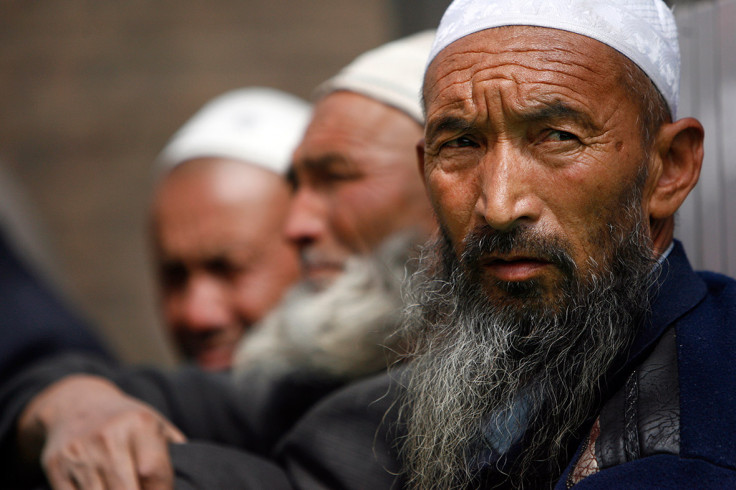Thousands of security personnel march through streets of China's restive Xinjiang province
Rally held in Hotan prefecture hit by ethnic strife between Uighur Muslims and Han Chinese.

Thousands of armed security personnel marched through the streets of China's restive Xinjiang province on Friday (17 February) in protest against rising threat of terrorism and separatism. The parade was held by the local government in Hotan prefecture which has been hit by ethnic tensions between Uighur Muslims and the Han Chinese community.
The march involving thousands of armed police and paramilitary officers was designed to "show strength and intimidate", according to a front-page report in the official Xinjiang Daily.
"Continued vigilance and high-pressure deterrence against terrorists have forced them to the end of the road, like a cornered beast driven to desperate action," Reuters cited Xinjiang deputy party secretary Zhu Hailun as saying.
The rally came amid the recent escalation in violence in the far-western Chinese region that is home to a majority of the ethnic Uighur Muslims.
Discord between authorities and the indigenous Uighur community goes back a long way. China has often been accused of trying to suppress the Uighurs, an allegation the government has strongly denied.
Hundreds have died in Xinjiang in recent years, which the government claims is the result of unrest caused by Islamist militants and separatists. But rights groups argue that the violence is a reaction to China's harsh policies.
After a brief respite, violence has escalated recently, particularly in the region's south.
On Tuesday, at least five people died and five others were injured in a violent attack by three knife-wielding men in Hotan prefecture's Pishan county.
Xinjiang shares its border with Central Asia, India, Pakistan and Afghanistan.
In December, a car carrying several terror suspects rammed into a government building and set off explosives. One person was killed in the attack and police shot dead four assailants.
China is said to have imposed travel restrictions on Uighurs and now the authorities have also reportedly ordered the residents of Xinjiang to surrender their passports to police.
The Uighurs consider themselves culturally and ethnically related to Turkey and mostly follow Islam. They are the largest group of Muslims in China and speak a language that is close to Turkish. Hundreds of them fled China as the government reportedly ignored recognising their culture and language.
© Copyright IBTimes 2025. All rights reserved.





















